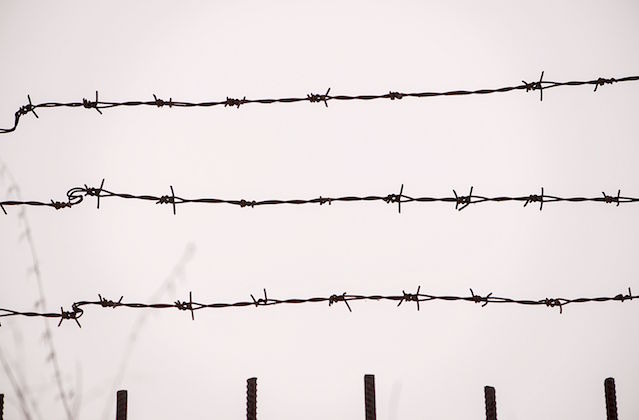Yesterday (February 14), Immigration and Customs Enforcement (ICE) stopped force-feeding a group of immigrant detainees on a hunger strike inside the El Paso detention center in Texas, reports the Associated Press.
Several immigrants began refusing food in December to protest the conditions, treatment and length of their detainment. As of yesterday (February 14), 12 men—some who have been in custody for over a year—were on strike, including nine Indian nationals and three Cubans. Per the AP, ICE began feeding six hunger-strikers through nasal tubes against their will in late January. That number eventually grew to nine.
The government first addressed the hunger strike publicly in detail on Wednesday (February 13), after a hearing for two detained immigrants, Malkeet Singh and Jasvir Singh. A U.S. district judge said ICE had to stop force-feeding the two men but would reconsider the practice if their health declined. On Thursday, ICE announced that all force-feeding had stopped. According to Texas Monthly, U.S. District Judge David Guaderrama said he believed the federal government still had the legal authority to force-feed the hunger strikers.
Michelle Iglesias, an ICE physician overseeing the force-feeding in the El Paso facility, said she will seek a court order when she observes a drop in magnesium, phosphate and potassiam levels, among other health factors.
From Texas Monthly:
rnt
Once a judge approves force-feeding of a hunger striker, [Iglesias will] insert a nasogastric, or NG, tube that runs through the nose, down the esophagus and into the stomach. If a hunger striker is uncooperative for feedings, they are placed in a hospital bed in a seated position with their arms and legs placed in soft restraints.
The American Medical Association is against force-feeding incarcerated people. As the AP reported last week, Office of the High Commissioner for Human Rights Spokeswoman Ravina Shamdasani said the force-feeding in El Paso could be viewed as "ill treatment" and violate the United Nations Convention Against Torture.
